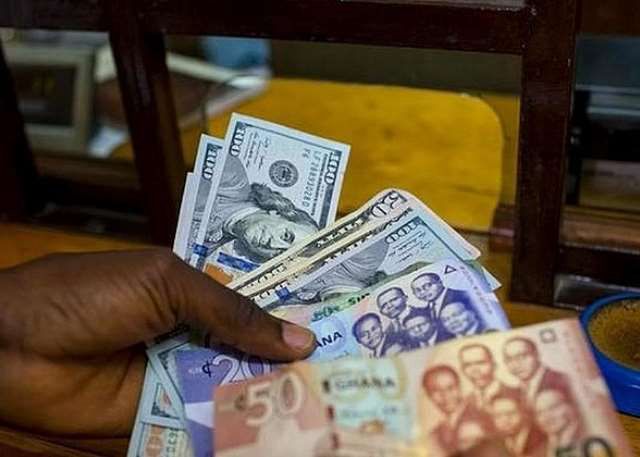The Ghanaian Cedi’s Resurgence: A Detailed Analysis of Exchange Rates
The Ghanaian cedi is experiencing a period of significant appreciation against major international currencies, most notably the United States dollar. As of March 28, 2025, data compiled from Cedirates.com, a reliable source for currency information in Ghana, indicates a notable strengthening of the cedi. This positive trend is reflected across various exchange platforms, including forex bureaus, the interbank market, and money transfer services. The cedi’s resurgence offers a welcome reprieve for businesses, individuals, and the Ghanaian economy as a whole, potentially leading to lower import costs and increased purchasing power.
Examining the specifics of the exchange rates, the cedi is trading at an average buying rate of GHS15.40 per dollar and a selling rate of GHS15.83. This signifies that individuals looking to exchange dollars for cedis can obtain GHS15.40 for every dollar, while those converting cedis to dollars will receive slightly less, at GHS15.83 per dollar. At forex bureaus, the rates are slightly different, with a buying rate of GHS15.60 and a selling rate of GHS16.00. This slight variation is typical of forex bureaus, which often adjust their rates based on market dynamics and individual negotiations.
The interbank market, where financial institutions trade currencies amongst themselves, presents even more favorable rates for the cedi. The buying rate for the dollar stands at GHS15.52, while the selling rate is GHS15.54. This smaller spread between the buying and selling rates in the interbank market reflects the larger volumes of currency traded and the lower transaction costs involved. The strengthening of the cedi against the dollar on the interbank market is a key indicator of the currency’s overall positive performance.
Turning to other major currencies, the cedi also exhibits strength against the British pound and the euro. The average exchange rate for converting pounds to cedis is GHS19.84, and for converting cedis to pounds, it’s GHS20.53. Similarly, for the euro, the average rates are GHS16.52 for buying cedis with euros and GHS17.18 for buying euros with cedis. On the Bank of Ghana interbank market, the pound is selling at GHS20.13, and the euro is trading at GHS16.78, indicating competitive rates for these currencies as well.
Money transfer services, which play a crucial role in remittances and international transactions, also reflect the cedi’s improved standing. LemFi and Afriex, two prominent money transfer operators, offer competitive rates for transferring funds from the US or the UK to Ghana. For dollar transfers, LemFi offers a rate of GHS15.43 per dollar, while Afriex provides a slightly more attractive rate of GHS15.24. For British pound transfers, LemFi’s rate is GHS19.92, and Afriex offers GHS20.21. Euro transfers through Afriex are priced at GHS16.87 per euro, while LemFi offers a rate of GHS16.62.
Finally, for digital subscriptions like Netflix, Spotify, and Apple Music, payments made using Visa and Mastercard are processed at an exchange rate of GHS16.64 per dollar. This rate, while slightly higher than some other platforms, remains competitive and underscores the overall accessibility of international services for Ghanaian consumers.
The observed appreciation of the cedi carries significant implications for the Ghanaian economy. A stronger cedi can potentially lead to lower prices for imported goods, easing inflationary pressures and boosting consumer purchasing power. This, in turn, can stimulate economic growth and improve living standards. However, a stronger cedi can also pose challenges for exporters, as their products may become less competitive in international markets. Striking a balance between a competitive exchange rate and price stability is a crucial challenge for policymakers.
Furthermore, the strengthening of the cedi can be attributed to a variety of factors, including improved macroeconomic conditions, increased investor confidence, and positive developments in the global economy. Government policies aimed at stabilizing the currency and promoting economic growth may also be contributing to the cedi’s positive trajectory. Analyzing these factors in detail is crucial for understanding the sustainability of the cedi’s appreciation and forecasting future exchange rate movements.
The information presented provides a comprehensive snapshot of the Ghanaian cedi’s performance against major international currencies. The data highlights a clear trend of appreciation, offering potential benefits for the Ghanaian economy and consumers. However, it’s important to monitor these trends closely and analyze the underlying factors to assess the long-term sustainability of the cedi’s strength. Further research and analysis are needed to fully understand the implications of these exchange rate movements for various sectors of the Ghanaian economy.
The observed strengthening of the cedi against the US dollar, British pound, and euro signifies positive developments in the Ghanaian economy. This trend can be attributed to various factors, including improved macroeconomic fundamentals, increased investor confidence, and favorable global economic conditions. Maintaining this positive momentum requires continuous monitoring and analysis of exchange rate movements and the implementation of sound economic policies.
The data provided offers valuable insights into the exchange rate landscape in Ghana, enabling businesses, individuals, and policymakers to make informed decisions. By tracking these trends and understanding the underlying dynamics, stakeholders can better navigate the complexities of international trade and finance. Further research and analysis are crucial for gaining a deeper understanding of the factors influencing the cedi’s performance and formulating effective strategies for managing currency risk.
The information presented offers a detailed overview of the current exchange rates for the Ghanaian cedi. This data is essential for individuals and businesses engaged in international transactions, enabling them to make informed decisions about currency conversions and manage their financial resources effectively. Continuous monitoring of these rates and analysis of market trends is crucial for navigating the dynamic landscape of international finance.
The Ghanaian cedi’s appreciation against major currencies represents a positive development for the Ghanaian economy. This trend, reflected across different exchange platforms, signifies improved economic conditions and increased investor confidence. However, maintaining this positive momentum requires continuous monitoring and analysis of exchange rate movements, coupled with sound economic policies that support sustainable growth and stability.














